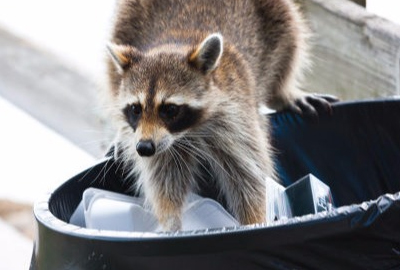November 29, 2024

Raccoons are known to be resourceful and adaptable animals. During the colder months, food becomes scarcer, and raccoons seek shelter in warmer places. Your home offers a perfect hiding spot, with attics, chimneys, and basements providing the warmth and protection they need to ride out the cold.
Signs of Raccoon Activity:
- Nighttime Noises: Raccoons are nocturnal and are most active at night. If you hear scratching, scurrying, or thumping sounds coming from your attic or walls, it could be a sign that raccoons have entered your home.
- Damaged Insulation: Raccoons often tear up insulation in attics and walls to create a nest. If you notice damaged or displaced insulation, it's a red flag.
- Droppings or Urine: Raccoons leave behind droppings or urine as they travel. If you see these near entry points or in hidden corners of your home, you may have a problem.
- Physical Damage: Raccoons can cause significant damage by chewing through vents, shingles, or even siding to gain access to your home.
How to Prevent Raccoons from Entering Your Home:
- Seal Entry Points: Inspect your home for potential entry points, including gaps around windows, vents, chimneys, and the roofline. Seal any holes or cracks with strong materials like steel mesh or caulk. Remember, raccoons can squeeze through openings as small as 4 inches.
- Trim Trees and Branches: Raccoons are excellent climbers. Trim back any tree branches or vines that provide easy access to your roof or attic. Keeping branches at least 3-4 feet from the roofline can help prevent raccoons from gaining access.
- Secure Garbage Cans: Raccoons are attracted to food sources, especially trash. Make sure your garbage cans are tightly secured, preferably in raccoon-proof bins, and place them in areas that are hard for wildlife to reach.
- Check Vents and Chimneys: Make sure that all vents, chimneys, and flues are properly capped or screened to prevent raccoons from entering your home. A damaged chimney cap or loose vent screen is a common point of entry.
- Remove Attractants: If you have bird feeders, pet food, or compost piles, consider moving them away from your home, as these can attract raccoons looking for food.
- Install Motion-Activated Lights or Noisemakers: Raccoons are shy and nocturnal, so motion-activated lights or noisemakers can help deter them from approaching your property.
As the cold season approaches, raccoons may seek refuge in your home, but with the right precautions, you can keep them out. Regular maintenance, proactive pest-proofing, and professional help when needed are your best defense. If you're experiencing raccoon activity or want to prevent it this winter, contact Secured Environment Pest and Wildlife Services today!
< Go Back to Blog
